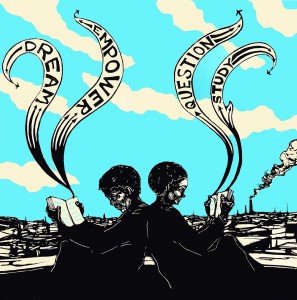The School to Prison Pipeline is Alive and Well…
Thanks to the Sentencing Project Race and Justice Newsletter, I learned today that:
According to the reports from the Metropolitan Nashville Public Schools (MNPS) to the U.S. Department of Education’s Office of Civil Rights, nine schools have suspended more than half of all black boys enrolled. One school, J.T. Moore Middle School, has suspended 58% of its African-American male population but only 10% of its white males. Similarly, according to the school district records, six elementary schools have suspended only black males despite four of these schools having a mixed population of black and white students. According to national statistics, African Americans are sent home from school three times more often than white students.
More about this story can be found here. For those who cannot see how this phenomenon of pushing young people (in particular young black males) out of school leads to future incarceration, I don’t know what to say. Recently I highlighted the specific connection between dropping out and future incarceration in a crazy pic fact of the day post.
The Sentencing Project goes on to highlight a recent NPR report about the disproportionate suspensions experienced by black male students in Nashville.
According to an NPR interview with Maury Nation, Associate Professor of Human Organizational Development, David Martin, Principal at Nashville’s Jerre Middle School, and Pedro Noguera, Professor in the Steinhart School of Culture, Education and Human Development, many school officials want teachers to be equipped with more alternatives to suspension. While their discussion focused on racial bias as the underlying problem, Martin, points to cultural differences; he asserts that many teachers are unfamiliar with many behaviors students display particularly when they come from environments that are very different from the environments teachers are unfamiliar with. For example, he explains, “Students who are trying to be successful in a community that is fairly violent, filled with gang activity, crime, drugs, and prostitution, have to learn a set of skills to survive on the streets that don’t necessarily translate well into appropriate school behavior.”
Professor Nation points to the complex issues that many students may be coping with in their families such as domestic violence or homelessness. He states, “We have to remember, we are talking about fairly young kids – nine, 10, 11 years old. If suburban kids are your benchmark, some of those behaviors may look unusual and, in fact, problematic.” Professor Noguera adds, “What’s important to keep in mind is that racial disparity and who’s disciplined mirrors the achievement gap. That is that the same kids who are least likely to do well in school are also the kids who are getting a disproportionate amount of discipline in school.” Ironically, we discipline misbehavior in school by denying students school time which exacerbates the academic problem.
The NPR story can be found here.

